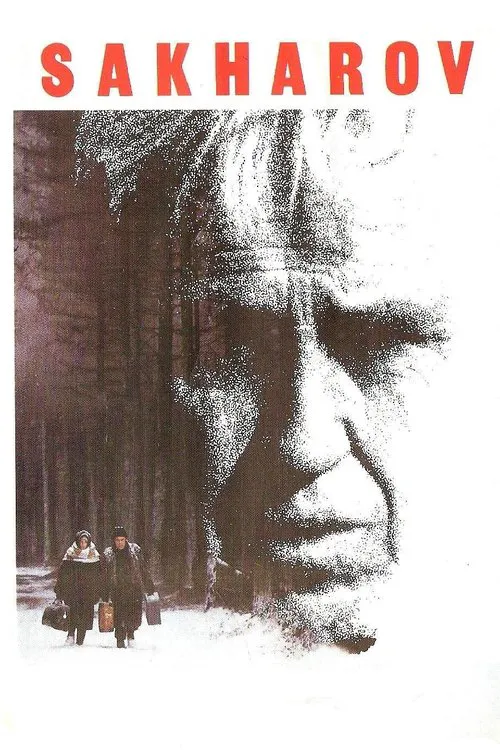Sakharov

Plot
The film 'Sakharov' tells the story of the life of Andrei Sakharov, a renowned Russian physicist and Nobel laureate who became synonymous with his unwavering commitment to human rights and his unrelenting opposition to Soviet tyranny. Born on May 21, 1921, in Kyiv, Ukraine, Sakharov's early life laid the foundation for his future intellectual pursuits and eventual involvement in the realm of politics. Growing up in the city of Gorky, Sakharov demonstrated exceptional aptitude in mathematics and physics, which eventually led to his enrollment in Moscow State University. There, he studied at the prestigious Physical Department and excelled in his academic pursuits. The film delves into his formative years, highlighting the events and experiences that shaped his worldview and ultimately led him to become a voice of dissent within the Soviet Union. Upon completion of his university education, Sakharov joined the Institute for Theoretical and Experimental Physics, where he worked on highly classified research projects related to the development of nuclear weapons. As a member of the Soviet nuclear team, Sakharov played a pivotal role in the creation of the hydrogen bomb, a feat that brought him both fame and notoriety. However, his association with the Soviet nuclear program also led to a deeper understanding of the catastrophic consequences of nuclear war, which began to influence his thinking and inform his moral stance. The film captures the turning point in Sakharov's life when he began to question the Soviet ideology and the country's treatment of its citizens. His growing unease with the Soviet regime's policies, particularly in regards to freedom of speech and individual rights, ultimately led him to express his dissent openly. Sakharov's most significant contribution to the Soviet human rights movement was his proposal of a unified nuclear test ban treaty for the benefit of humanity, an initiative that earned him both applause and criticism. As Sakharov's stance against the Soviet regime became increasingly public, he suffered severe repercussions. Accused of 'anti-Soviet activities' and 'disrupting public order', Sakharov's name appeared on the KGB's wanted list. Despite these challenges, he continued to push for reform and human rights within the Soviet Union. Sakharov's unwavering commitment and unyielding determination to the cause inspired many others to take up the mantle of dissent and fight for the rights of their fellow citizens. The film portrays Sakharov's relationship with his first wife, Klava, a woman who was initially hesitant to support his increasingly bold stance against the Soviet government. Nevertheless, she remained committed to Sakharov throughout, facing numerous challenges and hardships alongside him. One of the pivotal moments in 'Sakharov' involves his marriage to Elena Bonner, a strong and courageous woman who became his long-time partner and ally. Born on December 19, 1923, Bonner was a mathematician and a renowned figure in her own right, known for her unwavering commitment to women's rights and human rights. After his marriage to Elena, Sakharov's influence on the Soviet human rights movement grew significantly. His tireless advocacy for peace, disarmament, and human rights led to international recognition and acclaim. In 1975, Sakharov was awarded the Nobel Peace Prize, a testament to his dedication and hard work. However, Sakharov's outspoken criticism of Soviet policies also resulted in severe repercussions. In 1980, the Soviet government stripped him of his academic title and exiled him to the city of Gorky, where he remained until the collapse of the Soviet Union. Despite this ordeal, Sakharov continued to express his dissent, and in the late 1980s, he returned to Moscow, where he played a leading role in advocating for reform and promoting democratization. The film ultimately captures the end of Sakharov's life, which was marked by both triumph and tragedy. In 1989, he traveled to Moscow to urge the Soviet government to stop its ongoing crackdown on dissidents. However, on December 14, 1990, while still actively advocating for human rights, Sakharov suffered a heart attack. Despite attempts to revive him, Sakharov died, but his legacy lived on, leaving behind a testament to the enduring power of human dignity and the inalienable right of individuals to speak truth to power. The film 'Sakharov' offers a poignant portrayal of the complex and multifaceted life of Andrei Sakharov – a man driven by intellectual curiosity, a burning desire to do what is right, and an unwavering commitment to the fundamental principles of human rights.
Reviews
Recommendations


